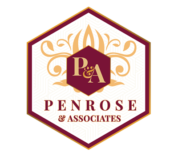9 Tax Deductions Every Freelancer and Small Business Owner Needs on Their Radar
Running a small business comes with its challenges. You have to navigate business licenses, contracts, marketing, and, perhaps the most daunting task of all, taxes. When you’re a W-2 employee, April 15 is usually pretty simple — fire up TurboTax, pop in your information, and wait for your refund.
For freelancers and small business owners, however, tax season is more complicated and higher-stakes. Every deduction has an impact on your bottom line. “As a freelancer, you’re paying not only federal and state income tax, but self-employment tax too. That includes both the employer and employee parts of Social Security and Medicare, which adds up to an extra 15 percent,” says Martin Kamenski, CEO of Revel CPA.
That’s why it’s critical to know what you can deduct and keep those receipts. Ilene Squires, founder of Squires Tax Prep, recommends making things easy by streamlining expense tracking into one platform. She says, “Bookkeeping software, like QuickBooks, can do it all: keep an active ledger of all your business transactions (expenses), track your mileage, invoice, accept payments from clients, and estimate your quarterly taxes.”
Not sure where to start or what is legit in the eyes of the IRS? Start with basic freelancer deductions, including your home office, advertising expenses, phone, professional services, retirement fund, and educational expenses, then move on to these additional tax deductions that might not be on your radar.
Creative Media
Inspiration is a deduction! For example, if you’re an artist, those museum visits can add up — but the IRS views them as a necessary business expense. “Art shows, cable TV, music services and any other artistic media are deductible as long as they are related to increasing industry-specific skills and knowledge,” says George Birrell, CPA and founder of Taxhub.
Business Meals
Whether it’s a cup of coffee while networking with a fellow creative business owner or lunch with a potential client, make sure you save the receipt. Kamenski says, “Congress made business meals that either take place in or are ordered from a restaurant 100 percent deductible for 2021 (instead of the usual 50 percent). Make sure you’re identifying those to your CPA so you get a full deduction!”
Amy Northard, CPA, adds, “Make sure to keep the receipt from the meal and a note of who the meal was with and the business purpose, just in case the IRS requests these details.”
Membership Dues
When you don’t have in-office colleagues, professional organizations can provide an outlet for brainstorming, networking, and education. Fortunately, the dues that often come with those memberships are 100 percent deductible, according to the IRS.
Merchant Processor Fees
If you use a third party to collect credit and debit card payment from your clients, you can also deduct the merchant processor fees, including those from Venmo or PayPal. Northard says, “These will need to be reported separately from the income collected through merchant processors as a business expense when you file your taxes.”
Industry-Related Publications
Keila Hill-Trawick, founder and CEO of Little Fish Accounting, says, “Often freelancers and creatives use magazines and books to increase knowledge, offer inspirations to their crafts, and keep them up to date on changes and trends. If these are ordinary and necessary to the business, it could be a chance to write off those subscriptions or purchases.”
Not-So-Basic WFH Deductions
Most freelancers and small business owners are familiar with the work-from-home deduction, but they aren’t aware of how extensive it is. Square footage and furniture setup are the first step, but, according to Squires, rental insurance, maintenance (improvements, cleanings, maintenance fees), utilities, and appliances are included, too. She explains further, “If you invested more than $1,000 for any one item (contractors and handypeople not included, but still expense-able), the taxpayer should take the Section 179 expense. If the item is less than $1,000, I would suggest taking the regular line item deduction on it as an ‘office expense.’”
Hill-Trawick adds, “There is a myth that the IRS flags home office deductions, but that’s not true! The space must be regularly and exclusively used for business, but if you meet the qualifications, there’s no reason you shouldn’t take advantage of direct and indirect expenses related to the space.”
Depreciation on Business Items
Business items can get expensive — particularly for creative freelancers. Computers, cameras, video equipment, and more add up, and they have to be replaced to stay current. Luckily, the depreciation deduction exists for this purpose. According to the IRS website, “It is an annual allowance for the wear and tear, deterioration, or obsolescence of the property.” A tax professional can help clarify what this deduction means for your business.
Charitable Contributions
During a time when many are compelled to give more, there’s an added tax-related bonus to doing good. “While charitable contributions won’t reduce your self-employment taxes, they will bring down your overall taxable income,” says Kamenski.
One Last Word of Advice
Despite how appealing it can be to rack up the expenses to help lower your tax burden, don’t spend money just to decrease your IRS bill. Hill-Trawick says, “Given that expenses are not a dollar-for-dollar tax deduction, don’t spend $100 unnecessarily to save $25 in taxes. Instead, look at planned investments. Do you need a new computer or is it time to replace equipment? Are there subscriptions that you could pay annually instead of monthly to increase the cost paid and save money in the process? Think of expenses as buying something on sale. Sure, it’s technically a savings, but it’s still cash out the door, so make sure it’s an expense that feels reasonable to you.”
